Masaru Goto is a Japanese photojournalist based in Bangkok, Thailand. It was his early photographs of the Cambodian war that first inspired his partner, and previously featured photo curator Yumi Goto.
In this exclusive Invisible Interview, we learn about Masaru the photographer, and his defining early days that shaped his career as a dedicated photojournalist come human rights activist.
Invisible Ph t grapher Asia: Can you tell us about yourself and how you got started in photography and photojournalism?
Masaru Goto: I am a Japanese photographer based in Bangkok.
I left Japan for South America when I was 22 because I wanted to become a photojournalist. I stayed in El Salvador, Nicaragua, and Peru before finally deciding to live in Colombia for a few years. It was then that I became a photographer documenting teams in human rights organizations recording violence in rural areas in Colombia. So this was how I became a photographer and that is is my background.
What cameras or tools do you use to photograph and why do you use them?
I use Digital – a Canon 5D Mark 2, and also film cameras – Leica, Mamiya 6 etc…
You started out photographing on film. What are your feelings about today’s new photographic tools?
Digital is good, easy to shoot and especially easy to adjust color or exposure after shooting. But I feel that it is difficult to make one’s own style of photographs with digital, if you compare it with shooting on film.
Can you tell us more about the way you work – your photography technique or philosophy perhaps?
I don’t have any special technique. I am a self-taught photographer. My philosophy is that whenever I take a photograph, it is important to relate it with human rights issues because I started as a photographer and member in a human rights organization in Colombia. I think I am a photographer and also a human rights activist.
You covered the Cambodian turmoil and war in the ‘90s. Can you tell us more about that experience?
I left for Cambodia to cover the civil war in 1992. I worked as a freelancer for the wire service. It was a hard time. I followed the story until the war ended in 1998. Then I stopped shooting for the wire service. I learnt a lot of things covering the war, not only as a photographer, but as a human being.
You covered the Thai protests in which a Japanese journalist was killed. Please share with us your experience.
It happened just nearby my house. Houses were burnt, and you could hear the sounds of bullets every day. I covered this story because I felt I should do it because it happened around my house.
A Japanese cameraman and an Italian photographer were killed. They were killed because it was a terrible situation. Anyone could have been shot during the riot.
You recently shifted your lens back to your motherland, the result of which are projects on the marginalised Buraku-Min community and World War 2 survivors. Tell us more and why they have drawn you back to Japan?
I felt that I needed to shoot in Japan again. It may be because I’ve left Japan for almost 22 years now. My view is more that of a foreigner than a native Japanese. So I thought it would be interesting to explore important social issues in Japan. I will start another new photo project in Japan in 2011 too.
What is your most memorable or personal favorite of the photographs you’ve taken, and why is it special to you?
My most memorable was in Colombia when my friend was assassinated. I took photographs of him. He was killed because of me. He helped me in covering the conflict but the Right Wing Paramilitary didn’t want him to so they killed him. These photographs are linked intrinsically to me as a person, and to my life.
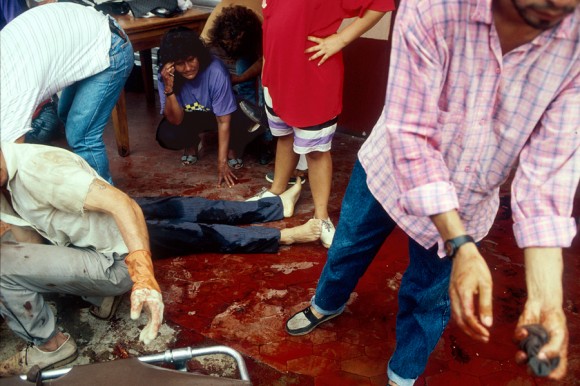
Most memorable photograph by Masaru Goto
I want to take photographs in Japan.
Are there any photographers that inspire you, or whose work you admire?
Susan Meiselas inspires me a lot.
Your camera has one shot left. What will you photograph with that last ever frame?
I may leave it be.
If you could travel in time, what year in the past or future would you travel to with your camera?
Maybe in 1989, when I was leaving Japan.
Finally, what words of advice from your 20+ years of experience can you share with young photographers aspiring to be photojournalists?
I think the most important thing is what you decide you want to photograph. And to keep your confidence as a photographer.
View Photo Essay: Re:War – Cambodia, by Masaru Goto
More of Masaru Goto’s photographs on his website: www.masarugoto.com
Share

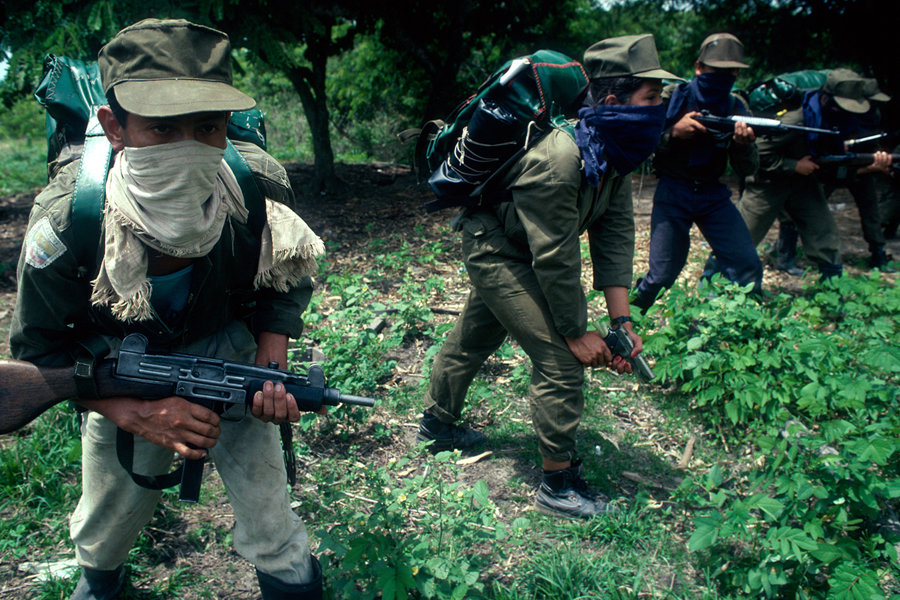
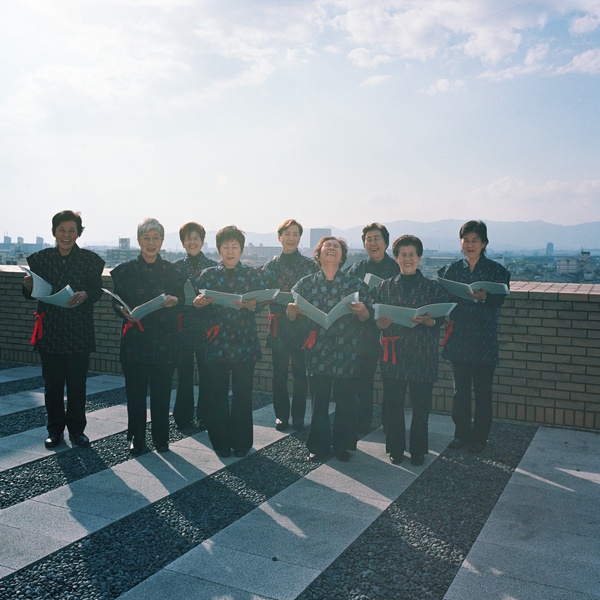
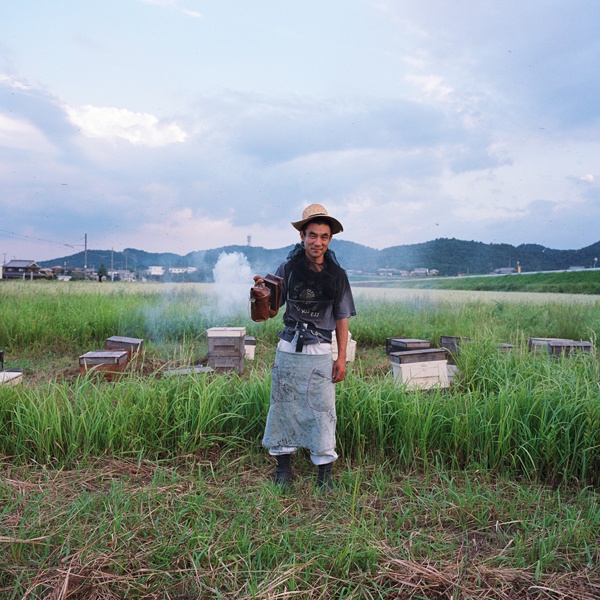
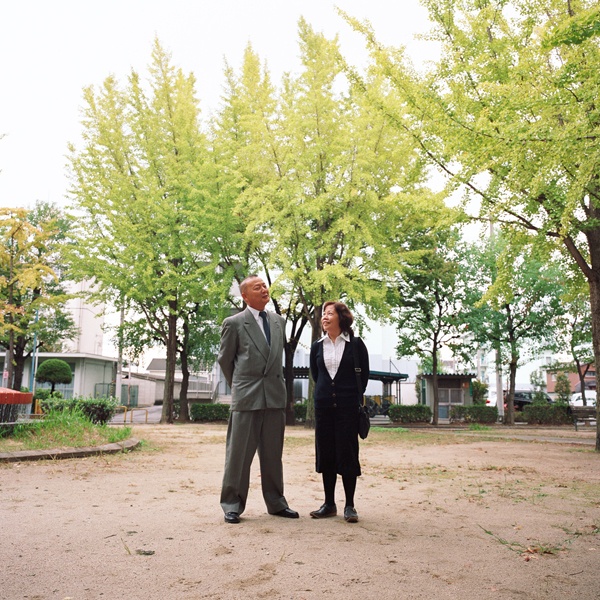

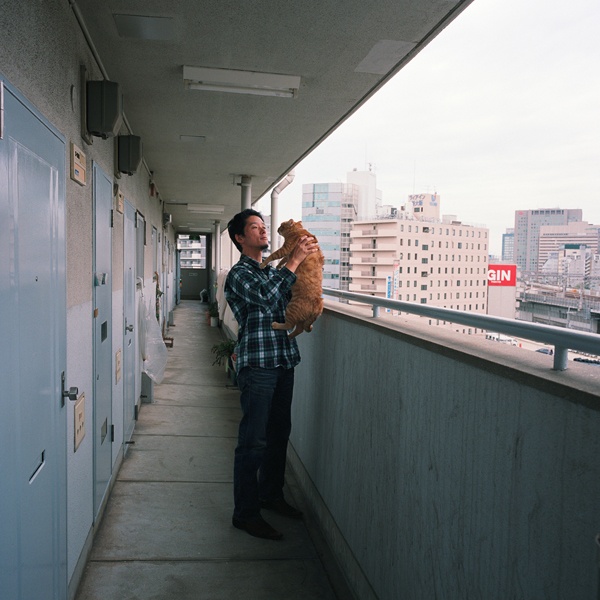
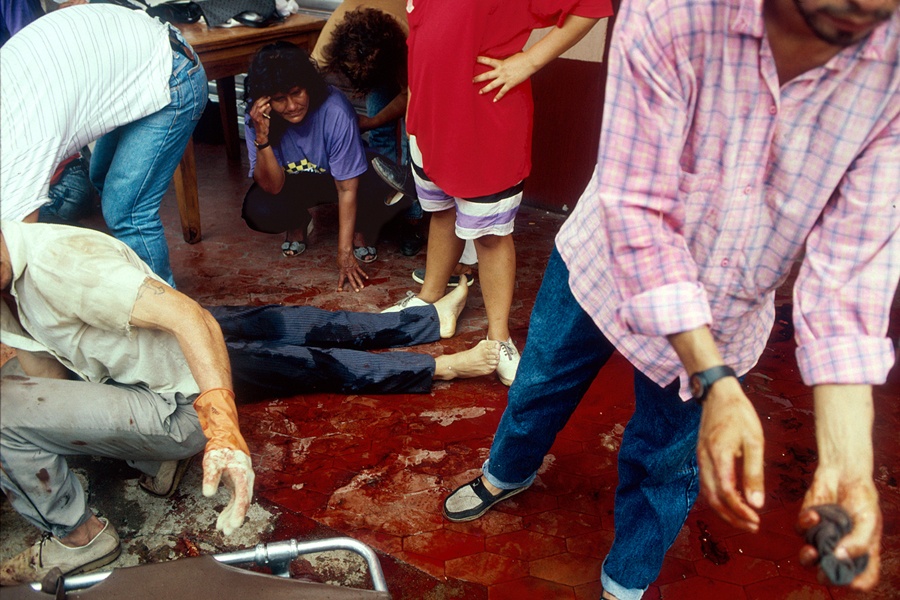
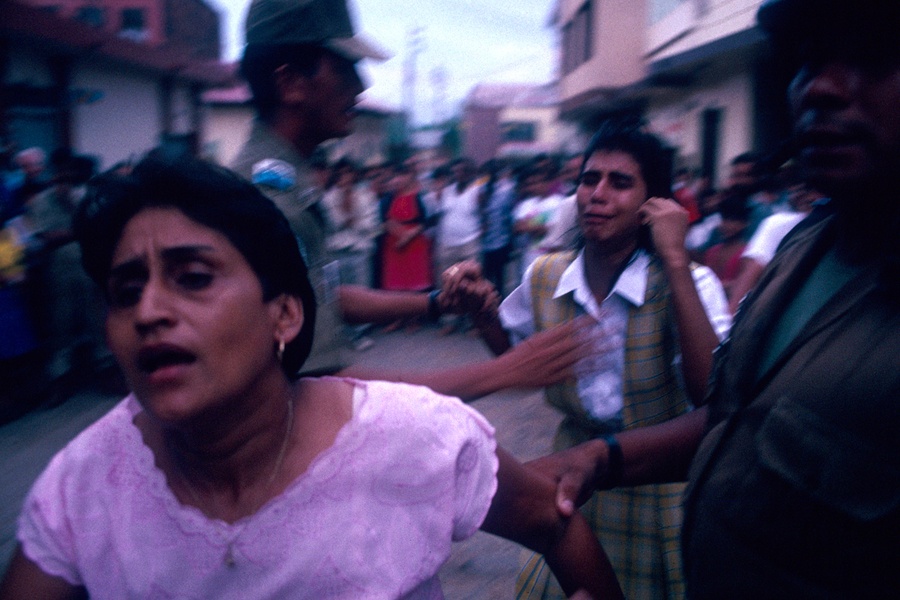

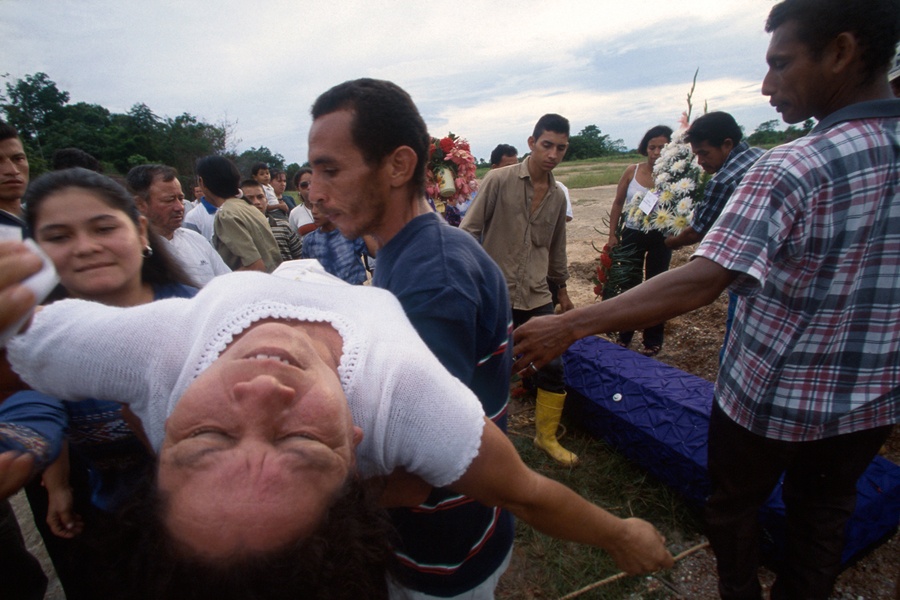
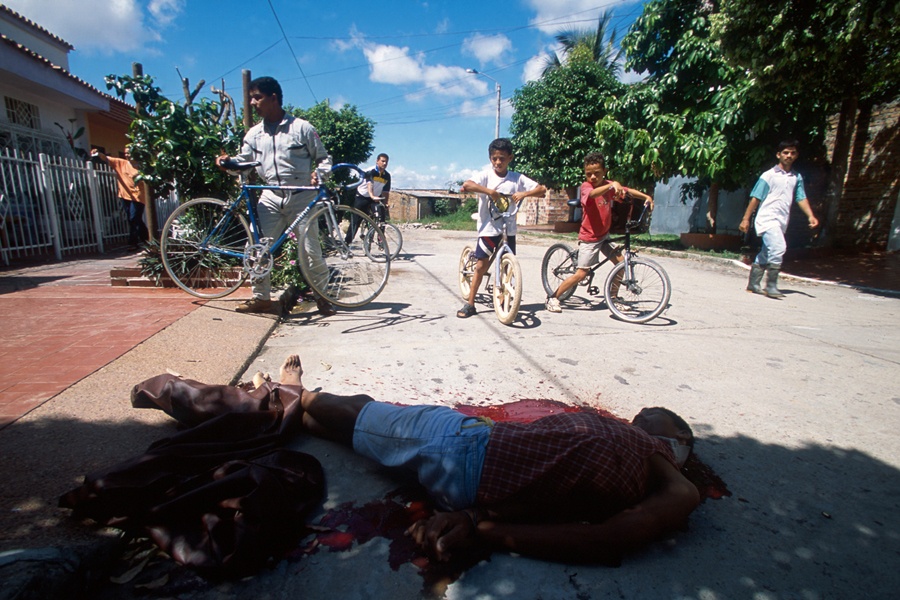


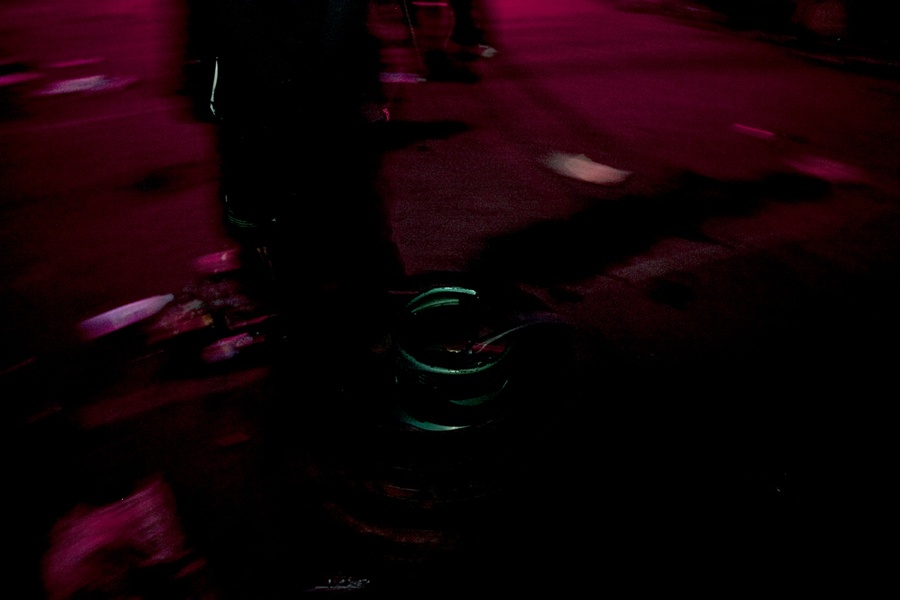
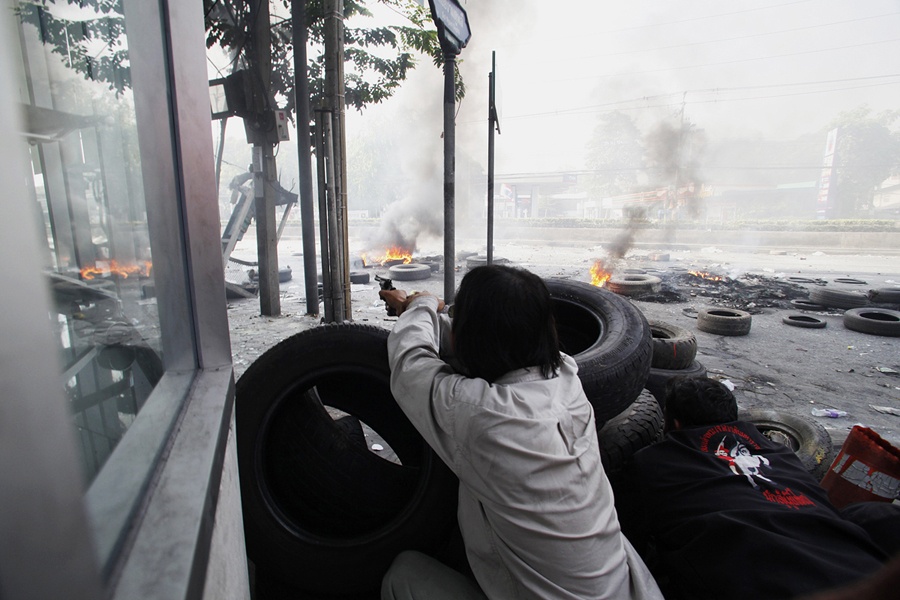
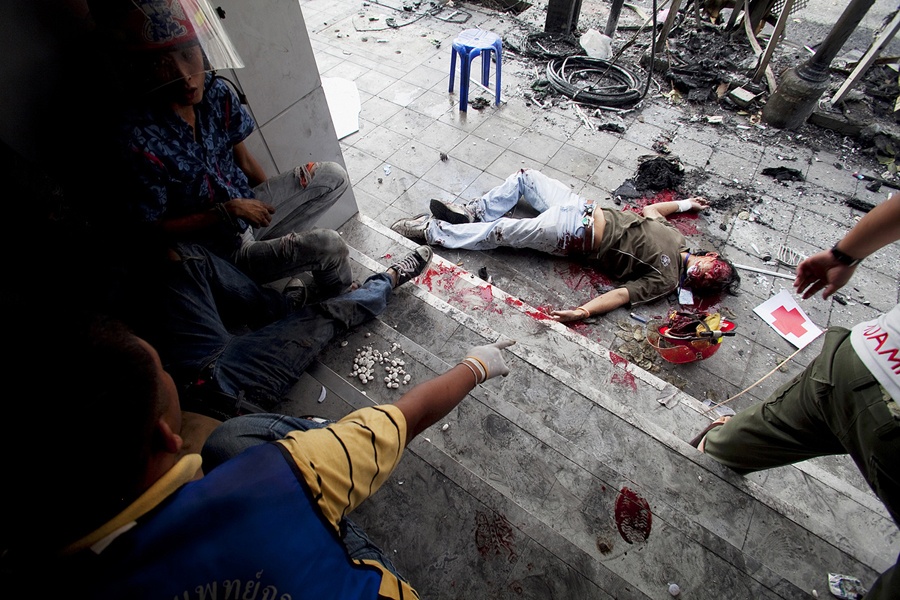


Comments 15
Invisible Interview & Photo Essay: Masaru Goto http://t.co/MXScR7D via@InvisPhotogAsia
"The most important thing is what you decide you want to photograph." Masaru Goto, photojournalist. http://fb.me/13vo4uzHo
"The most important thing is what you decide you want to photograph." Masaru Goto, photojournalist. http://fb.me/13vo4uzHo
"The most important thing is what you decide you want to photograph." Masaru Goto, photojournalist. http://fb.me/13vo4uzHo
"The most important thing is what you decide you want to photograph." Masaru Goto, photojournalist. http://fb.me/13vo4uzHo
"The most important thing is what you decide you want to photograph." Masaru Goto, photojournalist. http://fb.me/13vo4uzHo
"The most important thing is what you decide you want to photograph." Masaru Goto, photojournalist. http://fb.me/13vo4uzHo
"The most important thing is what you decide you want to photograph." Masaru Goto, photojournalist. http://fb.me/13vo4uzHo
Invisible Interview & Photo Essay: Masaru Goto. http://fb.me/In4ah0Eu
Invisible Interview & Photo Essay: Masaru Goto. http://fb.me/In4ah0Eu
I’m really curious about the picture number 17..
As a christian.
What does it mean?
Without doubt a great photographer and a brave man. I envy Masaro’s courage. Wish i could clean my white collar desk, pack my bags, and pursue my own personal dreams and passion without fear of consequence.
Can’t say anything………just like ur photos
n learned a lot from u Goto
Best Regards
Ben Lee
Your camera has one shot left. What will you photograph with that last ever frame?
I may leave it be.
I really like his answer.
All questions answer are just touch me… Thank u m.Goto… Take care & good luck.